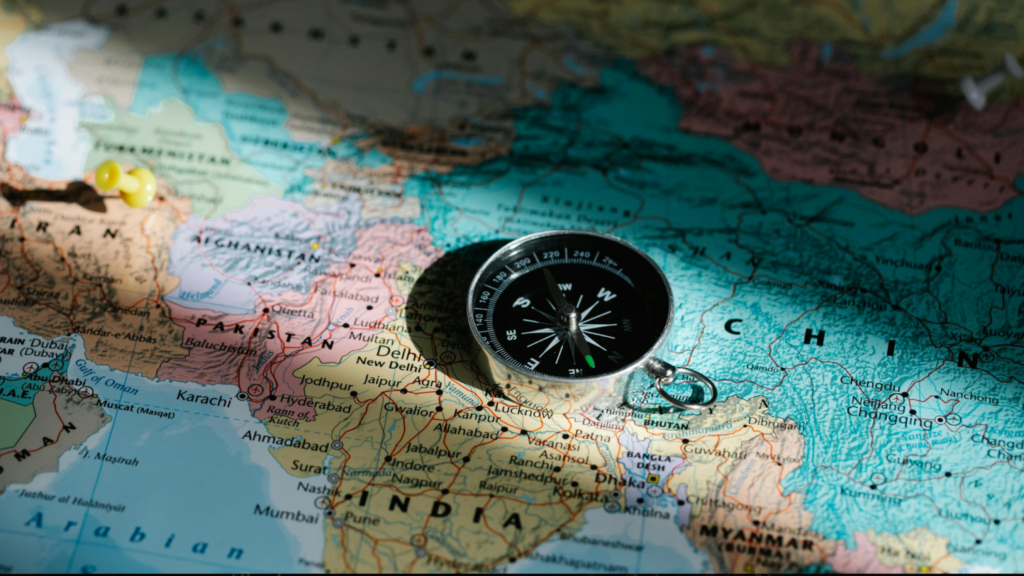Political Turmoil in South Korea?
The presidential elections in South Korea mark a pivotal moment in the reconstruction of democracy in the country going forward.
South Korea is currently experiencing a tumultuous period in its political history. The declaration of martial law in December 2024 by former President Yoon Suk Yeol, in conjunction with his attempt to suspend parliament, elicited significant popular opposition across the country. Yoon’s dismissal by the Constitutional Court soon afterward signalled the commencement of a process that has precipitated upheaval both politically and societally. South Korea is set to hold presidential elections on 3 June 2025 which is being seen as a significant turning point for democracy in the country (Agencies, 2025).
The Division of the Conservatives
Former Labor Minister Kim Moon-soo, who is widely regarded as the most prominent candidate representing the conservatives in South Korea, has been nominated by the People Power Party. However, the announcement of interim President Han Duck-soo’s candidacy has precipitated a profound leadership crisis within the party. While Han has sought to bolster his own legitimacy by criticising martial law, there are tensions within the party between those who defend Yoon’s legacy, and those who distance themselves from him. This has the potential to impede the consolidation of the right, thereby creating a political opportunity for liberals under Lee Jae-myung (Smith, 2025).
Han has since issued an apology to the country while also advocating for unity and healing as the electoral process unfolds over the coming months. However, the vestiges of the past are beginning to manifest in the electoral campaigns, and the current elections are shaping up to be, not only a political contest, but rather an opportunity for the country to heal its ideological wounds and achieve social integration (Ewe, 2025).
The Spectre of Social Crisis
Lee Jae-myung’s candidacy for president from the liberal Democtratic Party is faced with a significant challenge of its own. Lee is facing the prospect of being disqualified from the race as a result of alleged violations of election law. The Supreme Court’s recent decision to overturn Lee’s previous clearance from the allegations, has given rise to a debate about the impartiality of the judiciary in South Korea given that the majority of the judges were appointed by former President Yoon. The Supreme Court’s decision poses a triple threat: it jeopardises Lee Jae-myung’s candidacy, it could influence moderate voters and therefore the outcome of the election and it could erode public trust in the democratic processes of the country for years to come (Kim, 2025).
In addition, the societal division following the imposition of martial law in December 2024 has given rise to widespread public protest and the propagation of conspiracy theories, particularly by young people on social media (Ryall, 2025). The attempted assasination of Lee Jae-myung in January 2024, and the mob storming the courthouse in protest at Yoon’s arrest are indicative of the radicalisation of Korean society in recent years. In this vein, the upcoming elections will not only determine a new leader, but will also serve as a critical test of the future of democracy in the country (Heuser, 2025).
The increasing polarisation between right-wing and left-wing political groups reveals a divided electorate. In this way, the presidential candidates’ efforts to gain the public’s trust will be more important than their policies. Furthermore, the demographic composition of the electorate may prove pivotal in determining the election’s outcome (Nazarenko, 2025). The role of young people will be of particular significance, in that it is this generation that will determine the impact of the elections, and thereby the future of Korean society.
The rise in moderate ideology, as depicted in the graph, indicates a shift towards a more centrist stance against political radicalisation. The modest increase in the conservative segment points to the presence of a base that has not fully abandoned its perspective despite Yoon’s removal. The stability of the progressive segment is indicative of this group’s resolute yet restrained approach in the current polarised environment. Interestingly, all of these developments underscore South Korea’s unwavering commitment to democracy, despite the challenges it has faced throughout its history. The influence of young people, and the use of social media, has fostered a new level of political consciousness, making the upcoming elections a crucial moment in the reconstruction of South Korean democracy going forward.
Bibliography
Agencies (2025) South Korea sets snap election date after President Yoon’s removal from office. The Guardian. Available at: https://www.theguardian.com/world/2025/apr/08/south-korea-election-date-2025 (Accessed: 7 May 2025).
Ewe, K. (2025) South Korea to hold presidential election on 3 June. BBC News. Available at: https://www.bbc.co.uk/news/articles/cd7ve4qnlw9o (Accessed: 7 May 2025).
Heuser, C. (2025) The upcoming rage election. IPS Journal. Available at: https://www.ips-journal.eu/topics/democracy-and-society/the-upcoming-rage-election-8219/ (Accessed: 7 May 2025).
Kim, M. (2025) A court ruling roils South Korea’s presidential election. Los Angeles Times. Available at: https://www.latimes.com/world-nation/story/2025-05-05/a-court-ruling-roils-south-koreas-presidential-election (Accessed: 7 May 2025).
Nazarenko, V. (2025) South Korea to hold early presidential elections in June. RBC Ukraine. Available at: https://newsukraine.rbc.ua/news/south-korea-to-hold-early-presidential-elections-1744013037.html (Accessed: 7 May 2025).
Ryall, J. (2025) South Korea deeply divided ahead of June election. Deutsche Welle. Available at: https://www.dw.com/en/south-korea-deeply-divided-ahead-of-june-election/a-72320560 (Accessed: 7 May 2025).
Smith, J. (2025) South Korea’s Lee spared pre-election ruling, conservatives struggle to unite. Reuters. Available at: https://www.reuters.com/world/asia-pacific/south-koreas-former-pm-seeks-distance-martial-law-election-bid-2025-05-07/ (Accessed: 7 May 2025).
Son, Y., & Song, C. (Eds.). (2025). 2025 Perception Survey on Political Polarization. East Asia Institute. Available at: https://www.eai.or.kr/new/ko/pub/view.asp?intSeq=22687&board=kor_issuebriefing (Accessed: 7 May 2025).



